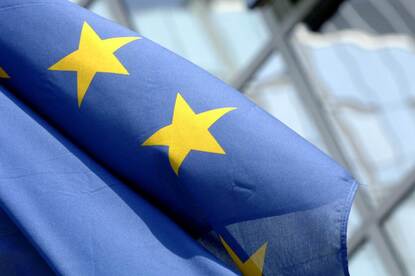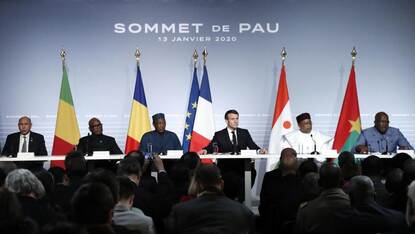Tekst Timothy Lionarons
Hannah Neumann reageert namens het Europees Parlement op het wapenexportbeleid van de EU-lidstaten.
"Leestijd: 3 minuten"
Ms Neumann, you are the rapporteur of the upcoming report of the European Parliament (EP) on arms export. Can you explain the EP’s involvement in arms export (in view of national competence) and the importance of the EP’s involvement?
Since arms are not goods that can be exported like any other, we need to be particularly vigilant and apply strict criteria. In order to adhere to these criteria, we have a common EU position. Still, exporting practices of member states diverge. Therefore, EU member states have agreed to increase coherence regarding these practices. This is of critical importance, given that we are a united economic area and should hence speak with one voice on issues of the Common Foreign and Security Policy.
The required democratic oversight regarding this matter is provided by the European Parliament. We regularly comment on the annual Working Party on Conventional Arms Exports (COARM) compilation of member state reports on arms export. Moreover, we assess the information provided and make recommendations on how to improve the implementation of the common position. In my opinion, this kind of parliamentary oversight is key.
What sparked your own personal interest in arms (export) control?
I have experience working in crisis regions and have witnessed the consequences of the misuse of arms by repressive regimes myself, amongst others the suppression of the opposition. In fact, a simple glance at the news reveals the potential contribution of arms to suffering, including through those provided by EU companies. I strongly feel that EU companies should not benefit from sufferings like these. Therefore, I am happy to see that there is a strong civil society movement in Europe protesting such kinds of arms export.
Recommendations
In your report you make a number of recommendations regarding EU arms exports. Can you elaborate on the most important recommendations?
It is obvious that arms production in the EU has become increasingly “Europeanised” – yet this process is not reflected in export decisions, which are still made on a national level. This is why the EU arms policy must become more coherent. Furthermore, member states need to be more transparent and comparable in their reporting, to allow for the necessary public debate that should accompany any export decision. Here, an easily searchable database, which would include data disaggregated along military list category and final destination, would be a big step forward. Finally, arms often end up where they are not supposed to. More EU cooperation in end-user control would benefit everybody.

In your view, what could help to achieve further convergence of the interpretations by EU member states of the Common Position on arms export?
We continue to see cases where member states hold opposing views in their interpretation of the common position, leading to different export decisions. A high profile example is the decision of several member states, including the Netherlands and Germany, to impose an arms embargo on Saudi Arabia due to its involvement in the war in Yemen. Unfortunately, other member states did not follow suit. When exporting to third countries, we have to ensure that the strictest standards are applied by all, to prevent arms produced in the EU from contributing to human suffering. Translating the EU Common Position to Community Law would be the best way to ensure this.
Transparency
How does transparency regarding arms exports tie into this?
As parliamentarians and as citizens, we need transparency on arms exports to countries outside the EU. We have a right to obtain the details we need in order to assess these exports and the risks they may involve. The information we currently receive from Member States does not suffice. It leaves us guessing about important information, especially regarding the actual exports and their final destination.
We also require transparency to improve coherence of arms export policies. Additionally, we need transparency to have an open and frank debate about current differences between export policies, their consequences and how to overcome these differences.
How do you rate the Netherlands’ policy and level of transparency regarding arms exports? Any recommendations?
The draft report notes that not all member states have made full submissions for the annual arms export report. The Netherlands are among the countries that made full submissions.
Challenges and Opportunities
What do you view as the main challenges and opportunities in the field of EU arms exports and arms export control in the coming months/years?
The key challenge is that, whilst the security sector remains a national sovereignty, we see an increasing Europeanization of arms production.
When several member states jointly produce weapon systems, current practice dictates that the country that “puts in the last screw” is also in charge of export to third countries. This is problematic, as it could be an incentive to opt for the end production to take place in a country with the least restrictive export policy and practice.
Increased cooperation at the EU level will add to these challenges. With the European Defence Fund and other funding initiatives, we might soon have weapon systems that are (partially) developed with EU funding. Who will decide about the export of these arms? With increasing EU funding, I think we really should also increase EU-level oversight of exports.







